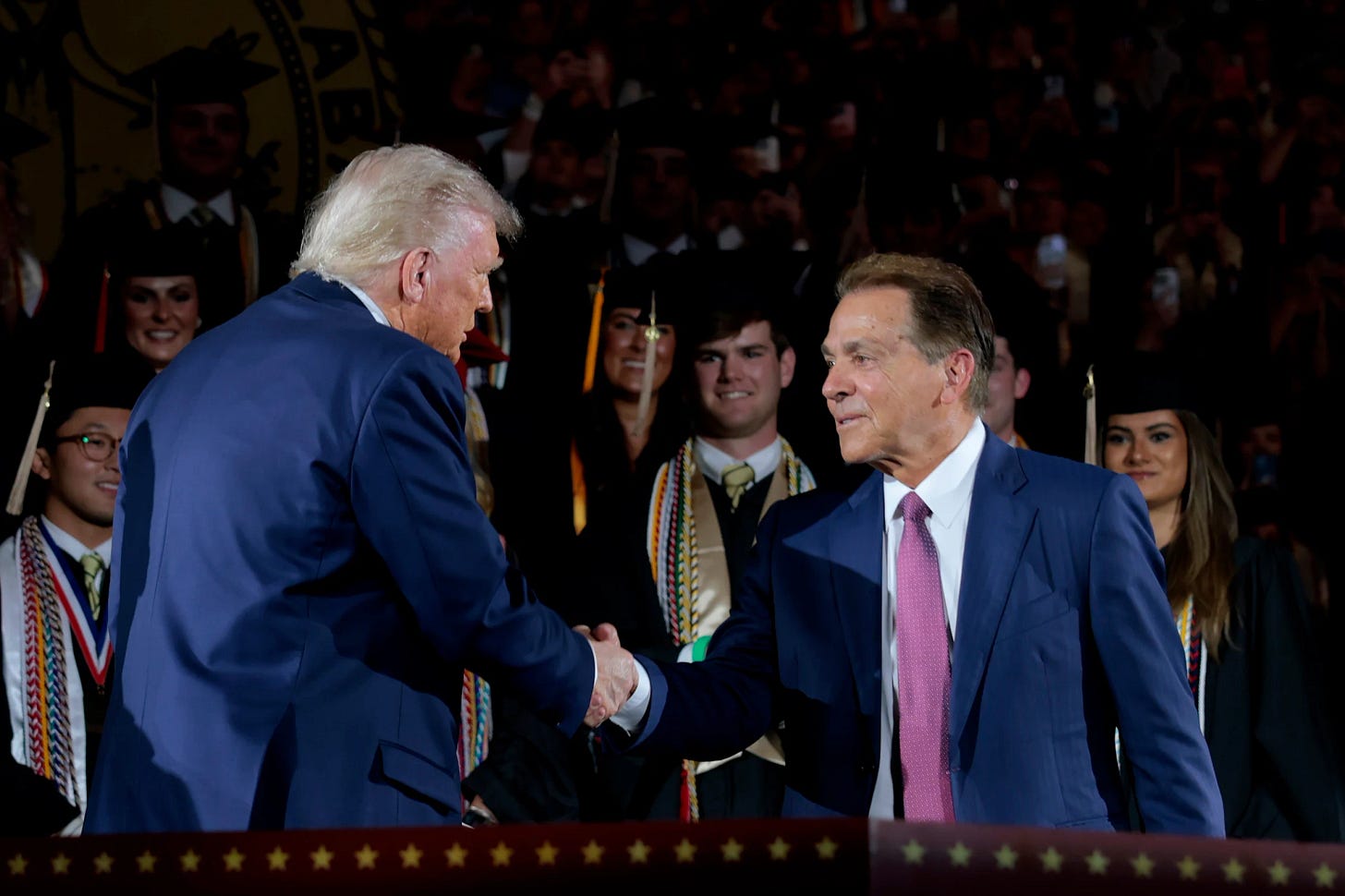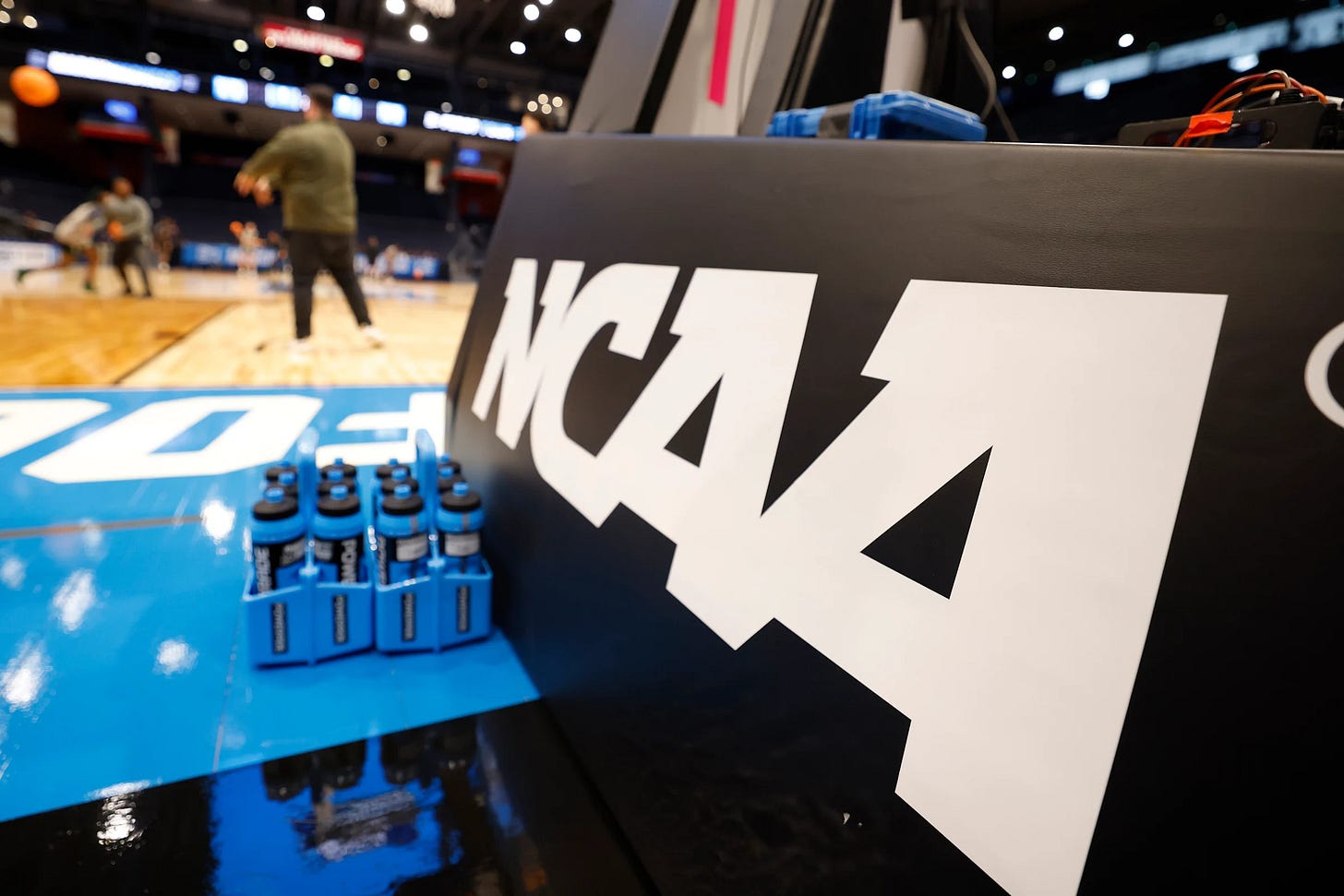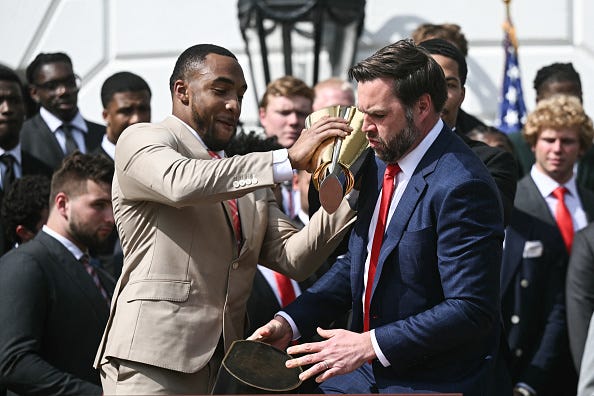Presidential Commission on College Sports, House Settlement Updated, ICYMI, & More | #326
Today’s Thursday newsletter includes highlights from this week, important news from last week, and what to watch for.
White House to Launch Presidential Commission on College Sports
Mandate & Make-up
An executive order is expected within weeks, creating the first-ever federal commission on college athletics.
Co-chairs: Nick Saban (ex-Alabama coach) and Cody Campbell (oil magnate; Texas Tech NIL benefactor), with additional stakeholders forthcoming.
Scope of Review
Transfer-portal churn, booster-funded NIL inducements, employment status, Title IX impact of direct pay, realignment economics, and media-rights pooling.
Legal Takeaways
Pre-emption push: Campbell has publicly argued for federal antitrust immunity and pre-emption of state NIL laws—expect those asks to headline commission recommendations.
Executive-order limits: A commission cannot override active court cases or state statutes; any durable solution still needs congressional legislation.
Optics vs. Action: Lawyers warn the panel could delay House-era implementation by reopening debates already hammered out in settlement talks.
Why It Matters
First time the Oval Office has directly inserted itself into NIL/compensation policy since Roosevelt convened the 1905 football summit.
Could shape the pending federal bill being drafted by Senators Booker, Cruz, Moran, Coons & Blumenthal.
House Settlement Roster-Limit Plan Re-Filed—Optional Grandfather Clause
Key Revisions
Schools may (not must) “grandfather” (i) current athletes; (ii) 2025 cuts; and (iii) signees whose promised spots were erased.
Protected athletes keep their exemption even if they transfer, forcing receiving schools to track rolling exception lists.
Open Legal Questions
Optionality vs. Equity: Objectors argue that a non-mandatory carve-out still places cuts in schools that refuse the waiver, expecting more filings.
Administrative Load: Rosters could exceed caps for 4-5 years, complicating Title IX proportionality and budget planning.
Judicial Fork-in-the-Road: Wilken can (a) grant final approval; (b) demand a third rewrite; or (c) deny, sending the case to trial and detonating July 1 direct-pay start dates.
Contingency Talk
ADs tell Yahoo they will pay athletes anyway under permissive state laws if the settlement fails, daring the NCAA to enforce.
New Deloitte-run clearinghouse ready but powerless without court blessing.
Quick Hitter News:
Notre Dame & Clemson ink 12-year annual series starting 2027 – Boosts Irish SOS inside new 14-team CFP; counts toward ND’s five ACC obligations. 🔗LINK
ACC men’s hoops trims league slate from 20 to 18 games – Goal: replace Quad-4 matchups with stronger non-conference for more NCAA bids. 🔗 LINK
Marquette adds women’s swimming (17th varsity sport) – Title IX & House-limit alignment; roster cap of ~30 helps offset potential football reductions. 🔗 LINK
Mit Winter on roster-limit filing – Notes transferability of grandfather status and heightened chance Wilken sends parties back yet again. 🔗 LINK
ICYMI
Arkansas NIL Collective Pushes Legal Boundaries
Arkansas’ NIL collective has formally activated a buyout enforcement clause against Madden Iamaleava amid transfer portal moves. Legal scholars are calling this a "first-of-its-kind" test case for NIL contract enforcement involving high school or transfer athletes.
The collective hired prominent attorney Tom Mars, signaling serious litigation intentions if the buyout isn’t honored. If successful, enforcement could normalize "athlete non-compete" clauses nationally.
Meanwhile, it is important to note that contracts structured with "liquidated damages" tied to athlete loyalty could set dangerous precedents for future NIL disputes.
Sources suggest other collectives nationwide are monitoring the Arkansas situation closely to adjust their templates. Expect the NCAA and state lawmakers to respond swiftly if enforcement leads to public backlash.
Such enforcement could trigger mass NCAA waivers or political interventions, and therefore, collectives nationwide may adopt stricter legal protections if Arkansas succeeds.
What To Watch For
Judge Wilken’s Next Move—Settlement Approval Clock Ticking
A decision could arrive any day. Approval triggers July 1 revenue-share; denial reopens litigation and hands more leverage to state-law direct-pay models.
Objectors plan additional briefs attacking “optional” grandfathering—if accepted, expect mandatory phase-in and delayed cap start to 2026.
Schools are finalizing dual budgets (with & without settlement) to avoid cash-flow shock.









